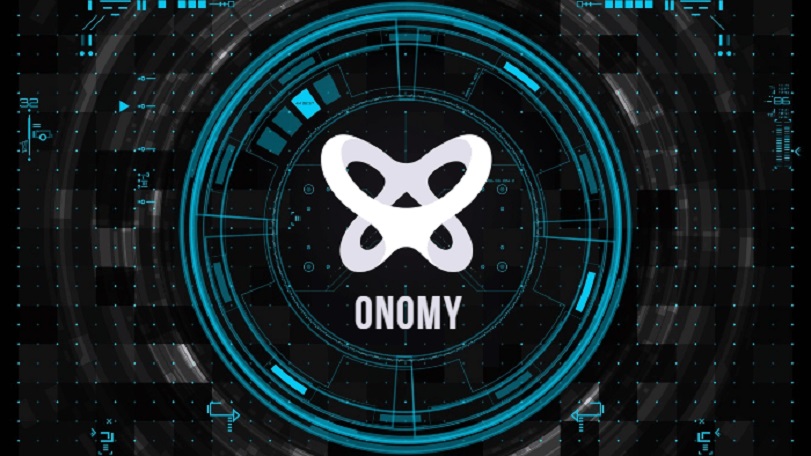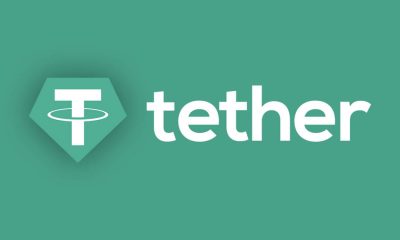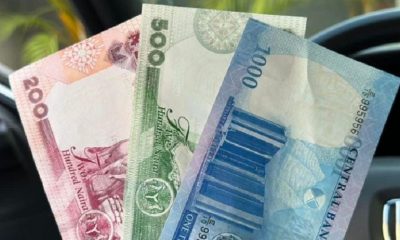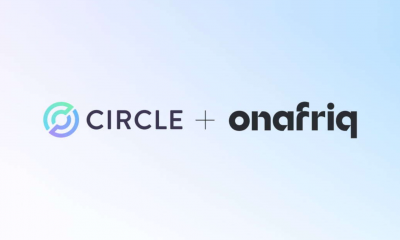Economy
Bitfinex Lists Native Onomy Protocol Token to Tackle Forex Volatility

By Adedapo Adesanya
Top cryptocurrency trading company, Bitfinex, has listed the Onomy protocol token ($NOM) as part of efforts to use digital currencies with stable value (stablecoins) to address challenges that fiat exchanges create for traders.
With this move, Bitfinex’s listing has bridged the gap in the foreign exchange market (Forex), eliminating its high risk and volatility amidst other downsides.
Bitfinex, which offers state-of-the-art services for digital currency traders and global liquidity providers, is one of the first and few exchanges to list the new $NOM token.
Effective from March 15, 2023, traders can easily access and trade the $NOM token on Bitfinex with US Dollars (NOM/USD) and Tether tokens (NOM/USDT).
With Onomy, it will be possible to open doors to full-scale institutional and retail adoption of Web3, protocol plugs in the foreign exchange market into decentralised finance(DeFi), alleviating the many concerns associated with volatile digital assets.
Onomy protocol is an interoperable Layer-1 ecosystem built to converge Forex DeFi through cross-chain bridges that support a variety of crypto assets and stablecoin representation of fiat currencies.
Products include an innovative multi-chain wallet, bridge hub, a DEX supporting an order book experience fused with AMM liquidity pools, and a stablecoin issuance protocol.
The market is highly fragmented, with stablecoin liquidity existing on different chains, requiring multiple wallets, apps, bridges, oracles, etc, all in a complex interconnected web of entirely separated applications.
Onomy has driven changes in the currently outmoded and fragmented forex market, providing a robust blockchain-powered infrastructure, where all transactions in multi-trillion dollars of the vast market and stablecoins consisting of all major national currencies stablecoins: USD, EUR, YEN, SGD, and more are managed on-chain.
Through vertical integration, a scalable layer-1 powers the Onomy product suite, a DEX providing a CEX-like experience whilst empowering liquidity providers and a multi-chain mobile wallet, creating an unparalleled on-chain experience enabling all on-chain actions to be as seamless as using a FinTech or brokerage app like Robinhood.
Together, these components enable full access to onboard into Forex from any chain and fully manage all actions and primitives from a central on-chain hub with no intermediaries.
NOM is heavily integrated into various products of the Onomy Ecosystem, such as the programmatic buy and burn utilising AMM earnings from the Onomy Exchange.
How to Sign up and trade $NOM on Bitfinex
Get NOM on Bitfinex, join the Onomy Community, and contribute to the DAO. NOM is available to trade with US Dollars (NOM/USD) and Tether tokens (NOM/USDt).
To sign up now, follow these few easy steps:
- Visit the Bitfinex website or download the Bitfinex mobile app and click on the sign-up button.
- Use the African Bitfinex LEOs community affiliate code “9r9ifKfHx” to get a 6% discount on trading fees for life.
- Create an account by entering the required details: username, email, password, country of residence and referral (optional).
- Create and confirm a log-in pin code or enable touch ID or face ID, if your phone enables it.
- You will be directed to the setup security page. Here, download the Google Authenticator app. If already downloaded, select the “I’ve installed the app” tab.
- Open the GA app to directly add your new token. Alternatively, you can also select to use the QR or Setup key. Enter your code to enable 2FA setup.
- Check your inbox to confirm your email address via an email sent by Bitfinex.
- After email confirmation, accept the Bitfinex Terms of Service to complete the account setup and proceed to the trading page.
- Once that is done, you can now trade the NOM ($NOM) on Bitfinex.
Bitfinex is a digital asset trading platform that has been in existence since 2012. As one of the oldest exchanges, Bitfinex is known for its robust service and security during all market environments, bull and bear markets, for more than 10 years.
The Onomy protocol on Bitfinex provides users with great convenience, helping them gain prompt access to $NOM, through an instant market with deterministic pricing and adequate liquidity. The protocol adopts the Bonding Curve Offering model, providing significant benefits to the token holders.
Economy
Stock Market Gains N2.367trn as All-Share Index Rises 2.06%

By Dipo Olowookere
The Nigerian Exchange (NGX) Limited appreciated by 2.06 per cent on Friday, amid a rush for local equities due to encouraging earnings of companies for 2025.
Business Post reports that the buying pressure was across the key sectors of Customs Street yesterday, with the banking index growing by 2.49 per cent. The energy industry appreciated by 2.05 per cent, the consumer goods counter grew by 0.78 per cent, the insurance space improved by 0.64 per cent, and the industrial goods sector expanded by 0.44 per cent.
At the close of trades, the market capitalisation went up by N2.367 trillion to N117.027 trillion from N114.660 trillion, and the All-Share Index (ASI) gained 3,687.45 points to close at 182,313.08 points compared with the previous day’s 178,625.63 points.
Cornerstone Insurance, Infinity Trust, and Nestle Nigeria appreciated by 10.00 per cent each to sell at N6.38, N9.90 and N2,662.00, respectively, while Okomu Oil rose by 9.99 per cent to N1,327.00, with RT Briscoe up by 9.97 per cent to N17.42.
Conversely, SAHCO depleted by 10.00 per cent to M135.00, Guinness Nigeria lost 9.97 per cent to trade at N103.00, Omatek shrank by 9.39 per cent to N2.99, NPF Microfinance Bank decreased by 6.51 per cent to N5.60, and eTranzact slipped by 6.33 per cent to N10.80.
A total of 53 stocks ended in the green side and 33 stocks finished in the red side, representing a positive market breadth index and strong investor sentiment.
Data showed that 936.4 million shares valued at N52.7 billion were transacted in 50,068 deals on Friday versus the 698.3 million shares worth N28.438 billion traded in 50,886 deals on Thursday, indicating a rise in the trading volume and value by 34.10 per cent, and 85.56 per cent apiece, and a slip in the number of deals by 1.61 per cent.
First Holdco closed the session as the most active equity with 106.3 million units worth N5.1 billion, Zenith Bank transacted 72.6 million units valued at N5.7 billion, United Capital traded 45.4 million units for N963.2 million, GTCO sold 45.0 million units worth N4.9 billion, and Fidelity Bank exchanged 31.4 million units valued at N639.0 million.
Economy
OTC Securities Exchange Extends Positive Run by 0.86%

By Adedapo Adesanya
The NASD Over-the-Counter (OTC) Securities Exchange rose further by 0.86 per cent on Friday, February 13, with the market capitalisation growing by N20.27 billion to N2.378 trillion from the previous session’s N2.357 trillion, and the NASD Unlisted Security Index (NSI) rising by 33.87 points to 3,974.77 points from the 3,940.90 points it ended a day earlier.
The improvement recorded by the bourse yesterday was influenced by six price gainers led by Okitipupa Plc, which went up by N18.00 to sell at N260.00 per share compared with the previous day’s N242.00 per share.
Further, Central Securities Clearing System (CSCS) Plc added N3.39 to quote at N80.47 per unit versus N77.08 per unit, IPWA Plc chalked by 31 Kobo to finish at N3.44 per share versus N3.13 per share, Lagos Building Investment Company (LBIC) Plc gained 31 Kobo to settle at N3.41 per unit versus N3.10 per unit, Afriland Properties Plc appreciated by 31 Kobo to N16.51 per share from N16.20 per share, and Food Concepts Plc increased by 8 Kobo to N3.28 per unit from N3.20 per unit.
There were three price losers, led by MRS Oil Plc, which weakened by N10.00 to close at N170.00 per share compared with Thursday’s price of N200.00 per share, FrieslandCampina Wamco Nigeria Plc lost N2.59 to sell for N65.52 per unit compared with the preceding session’s N68.10 per unit, and Geo-Fluids Plc depreciated by 33 Kobo to N3.30 per share from N3.63 per share.
During the session, the volume of securities transacted by the market participants went up by 9.5 per cent to 9.4 million units from 8.6 million units, the value increased by 1,206.5 per cent to N703.6 million from N53.9 million, and the number of deals grew by 7.1 per cent to 45 deals from 42 deals.
CSCS Plc remained the most traded stock by value (year-to-date) with 27.1 million units exchanged for N1.5 billion, followed by Resourcery Plc with 1.05 billion units traded at N408.6 million, and Geo-Fluids Plc with 29.9 million units valued at N152.6 million.
Resourcery Plc ended the day as the most traded stock by volume (year-to-date) with 1.05 billion units sold for N408.6 million, followed by Geo-Fluids Plc with 29.9 million worth N152.6 million, and CSCS Plc with 27.1 million units sold for N1.5 billion.
Economy
Naira Value Further Dips 0.13% to N1,355/$1

By Adedapo Adesanya
The Naira depreciated further against the United States Dollar by N1.76 or 0.13 per cent on Friday in the Nigerian Autonomous Foreign Exchange Market (NAFEX) to close at N1,33.42/$1, in contrast to the N1,353.66/$1 it was exchanged a day earlier.
However, the Naira appreciated against the Pound Sterling in the same market window yesterday by N5.05 to trade at N1,844.59 versus Thursday’s closing price of N1,849.64/£1, and against the Euro, it improved by 75 Kobo to quote at N1,60/€1 versus the previous day’s N1,608.68/€1.
At the GTBank FX desk, the domestic currency lost N6 on the US Dollar on Friday to settle at N1,365/$1 versus the preceding session’s N1,359/$1, and at the parallel market, it chalked up N10 to trade at N1,430/$1 versus the previous day’s N1,430/$1.
The weakening of the Nigerian currency in the official market happened as the Central Bank of Nigeria (CBN) refrained from intervening in the official window.
The FX supply side was eclipsed by growing demand for foreign payments. Exporters’ inflows, non-bank corporate supply, and other market participants’ contributions had enhanced the FX liquidity level.
Pressure came with the entry of all duly licensed Bureau De Change (BDCs) into the official foreign exchange, although there are indications that the move will help the Naira-US Dollar exchange value, as BDC operators have started approaching their banks to understand the operational modalities and framework for accessing Dollars.
As for the cryptocurrency market, benchmarked tokens improved as US interest rate futures on Friday raised odds of rate cuts by the Federal Reserve after a report that showed inflation rose less than expected in January.
Data showed the Consumer Price Index (CPI) rose 0.2 per cent last month after an unrevised 0.3 per cent gain in December, with Solana (SOL) up by 7.9 per cent to $85.17, and Ethereum (ETH) up by 6.5 per cent to trade at $2,059.78.
Further, Cardano (ADA) added 5.3 per cent to close at $0.2758, Ripple (XRP) jumped 5.1 per cent to $1.42, Bitcoin expanded by 4.8 per cent to $69,357.35, Litecoin (LTC) grew by 4.7 per cent to $55.27, Binance Coin (BNB) jumped 4.0 per cent to $621.88, and Dogecoin (DOGE) increased by 3.8 per cent to $0.0965, while the US Dollar Tether (USDT) and the US Dollar Coin (USDC) remained unchanged at $1.00 each.
-

 Feature/OPED6 years ago
Feature/OPED6 years agoDavos was Different this year
-
Travel/Tourism10 years ago
Lagos Seals Western Lodge Hotel In Ikorodu
-

 Showbiz3 years ago
Showbiz3 years agoEstranged Lover Releases Videos of Empress Njamah Bathing
-

 Banking8 years ago
Banking8 years agoSort Codes of GTBank Branches in Nigeria
-

 Economy3 years ago
Economy3 years agoSubsidy Removal: CNG at N130 Per Litre Cheaper Than Petrol—IPMAN
-

 Banking3 years ago
Banking3 years agoSort Codes of UBA Branches in Nigeria
-

 Banking3 years ago
Banking3 years agoFirst Bank Announces Planned Downtime
-

 Sports3 years ago
Sports3 years agoHighest Paid Nigerian Footballer – How Much Do Nigerian Footballers Earn























